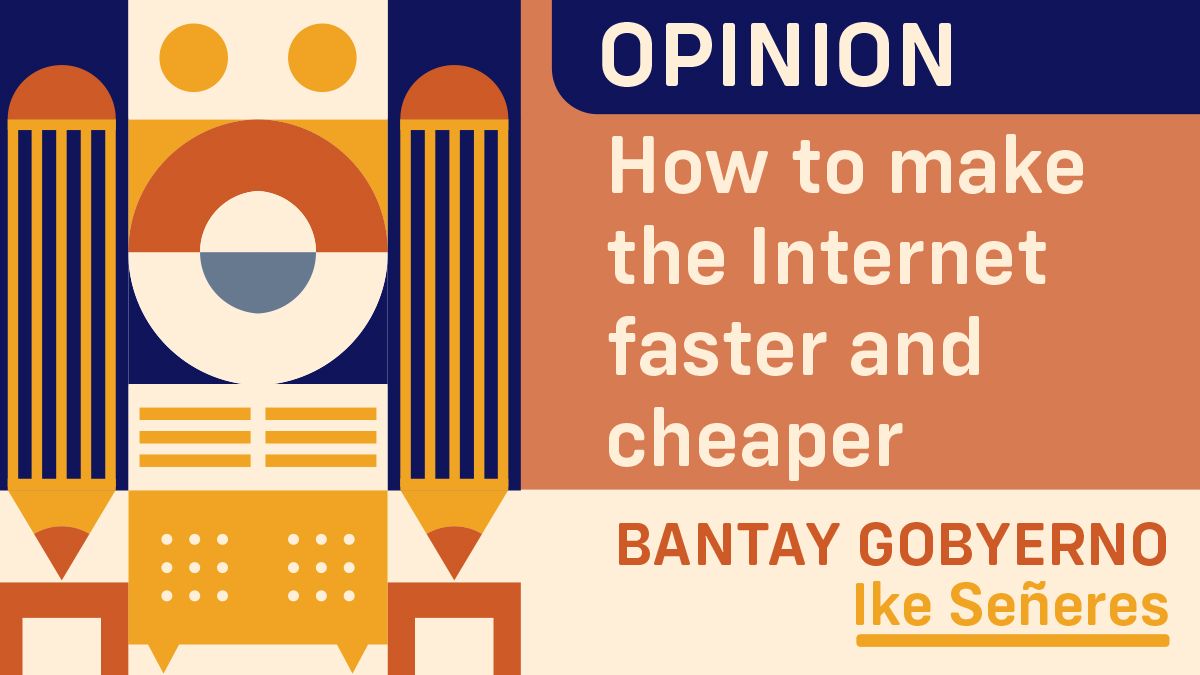My dear friends, do you think that it is possible to make the internet go faster, and not only that, to make it cheaper? My answer to both questions is yes, and allow me to explain to you why, but first let me tell you what the internet is, and how it runs. Perhaps you have already heard people talk that the internet is an information highway? Well, that story is true, and let me tell you why.
Imagine that your town has a superhighway, but it only has two lanes. If only a few vehicles will traverse the superhighway, the flow of traffic will be very fast. Perhaps when that superhighway was built, there were only very many vehicles on the road. As the number of vehicles doubled, the government should also have doubled the width of the superhighway, meaning that they should have added two more lanes to make it four lanes. Otherwise, the flow of traffic will become very slow.
Now, imagine that the internet is like a superhighway, and that is why it is called an information superhighway. But instead of vehicles traversing the superhighway, it is data that is traversing it. Just the same, if the width of the superhighway is narrow or thin, only a few megabits of data can traverse it, and if there are too many megabits of data that will traverse it, the flow will be very slow. Therefore, the solution to that problem is to make the information superhighway broader, and that my friends, is the easiest way to explain what broadband is.
Now that you know what broadband is, allow me to tell you what a broadband network is. According to Microsoft Copilot, “a broadband network is a high-speed internet connection that provides fast and reliable access to the internet”. By definition, a broadband network has three components, namely the backbone, the middle mile and the last mile. Some experts would define the middle mile as part of the backbone, but I think otherwise. So now, it is clear to you that to fix the internet to make it go faster, we must fix all three components.
Going straight to the point, the Philippines now has at least five broadband networks, namely the ones owned by Globe, PLDT, Converge, Ditto and DICT [Department of Information and Communications Technology]. That is the good news. But the good news is, these five broadband networks are not interconnected, at least not now, or for the most part. Converge and Ditto have reportedly agreed to interconnect, but not yet Globe and PLDT. I am sure that DICT would like to interconnect with all of them, but the National Broadband Program (NBP) that they are building is yet to be completed in 2026.
If you ask me, I will tell you that the NBP should be bigger and broader than what the private networks have right now. And if we could make that happen, we should then allow the private networks to use the NBP for free, in the same way that private bus companies are now using our physical superhighways for free. If we do that, the costs of the private networks will go down, and in theory, they could pass on their savings to their customers, hence making their internet services cheaper. With a bigger NBN, the DICT could now convince the private networks to interconnect, and that is what is going to make the internet in this country go faster, among other solutions.
Your friend, IKE SENERES/11-26-24/visit my blog senseneres.blogspot.com
#WeTakeAStand #OpinYon #OpinYonNews #OpinYonColumn #ColumnbyIkeSeñeres #BantayGobyerno

